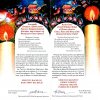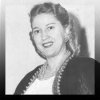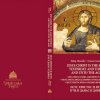Grace, Peace and Mercy of the Resurrected Savior Christ!
The Most Dear Ones in the Lord,
We celebrate the death of death,
the destruction of hell,
the beginning of other, eternal life.
And leaping for joy, we celebrate the Cause,
the only blessed and most glorious God of our fathers.
(The Paschal Canon, Ode 7)
We pray that God may bless your efforts and good works, granting you the tranquility that comes from the certainty that only the victory over death establishes life, transforms the common yeast of corruption into the heavenly Bread, and makes our homeland a loving prefiguring of the coming City.
May the the light of the Resurrection of Christ who gives us the power not to die (Jn 11:26) and abundant gratitude toward our God Who is worshipped in Trinity, be with you and with all of yours.
Христос Васкрсе! Christ is Risen! Χριστός Ανέστη!
Indeed He is Risen!
At the Holy Pascha of our Lord, 2014
Bishop Maxim
Your Intercessor before the Resurrected Christ
Благодаћу Божијом, Православни Епископ западноамерички
Благодат, мир и милост од Васкрслога Спаса Христа
Најдражи у Господу,
Празнујемо умртвљење смрти,
Адово разрушење,
Почетак другога, вечног, живота
И играјући певамо Узрочника,
Jединога благословенога Бога отаца и препрослављенога.
(Пасхални канон, седма песма)
Молитвено желимо да Господ благослови дела ваша, дарујући вам спокој услед извесности да једино победа над смрћу васпоставља живот, преображава општи квасац пропадљивости у небески Хлеб и чини да наша отаџбина буде љубавни праобраз Града који долази.
Да Светлост Васкрсења Христовог, Који нам даје моћ да не умремо (Јн 11, 26) и непрестана благодарност Богу у Тројици слављеноме, буде са Вама и са свима Вашима!
ХРИСТОС ВАСКРСЕ! ВАИСТИНУ ВАСКРСЕ!
О Светој Пасхи Господњој, 2014. године
Епископ Максим
Ваш молитвеник пред Васкрслим Христом





